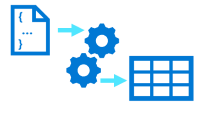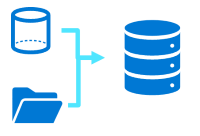A data engineer is the primary role responsible for integrating, transforming, and consolidating data from various structured and unstructured data systems into structures that are suitable for building analytics solutions. An Azure data engineer also helps ensure that data pipelines and data stores are high-performing, efficient, organized, and reliable, given a specific set of business requirements and constraints.
The data engineer will often work with multiple types of data to perform many operations using many scripting or coding languages that are appropriate to their individual organization.
As a data engineer some of the main tasks that you'll perform in Azure include data integration, data transformation, and data consolidation.
Data integration

Data Integration involves establishing links between operational and analytical services and data sources to enable secure, reliable access to data across multiple systems. For example, a business process might rely on data that is spread across multiple systems, and a data engineer is required to establish links so that the required data can be extracted from all of these systems.
Data transformation

Operational data usually needs to be transformed into suitable structure and format for analysis, often as part of an extract, transform, and load (ETL) process; though increasingly a variation in which you extract, load, and transform (ELT) the data is used to quickly ingest the data into a data lake and then apply "big data" processing techniques to transform it.
Data consolidation

Data consolidation is the process of combining data that has been extracted from multiple data sources into a consistent structure - usually to support analytics and reporting. Commonly, data from operational systems is extracted, transformed, and loaded into analytical stores such as a data lake or data warehouse.